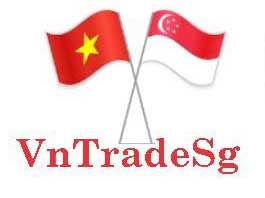Foreign enterprises operating in Vietnam in the areas of electronics, automobile assembly, garments and textiles and others are seeking local partners amid the outbreak of the COVID-19 epidemic in a large number of countries across the world. This is an opportunity for Vietnam’s supporting industry enterprises to accelerate and participate in the global value chain.
Shortage of supply of components and raw materials
According to the Ministry of Industry and Trade, some foreign direct investment (FDI) enterprises are seeking the domestic supply of raw materials which is a ‘unique’ opportunity for Vietnamese enterprises in supporting industries to prove their capacity, thereby joining the global value chain.
Vietnam had to import about US$40 billion worth of electronic components in 2019, includingUS$16.8 billion from the Republic of Korea (RoK) (accounting for 42%), US$13.8 billion from China (accounting for 34%), and US$1.7 billion from Japan (accounting for 4.2%), among others. Currently, electronic enterprises only have enough spare parts for production until the end of March, 2020.
Regarding the textile, garment and leather shoes and bags industry, Vietnam imported US$ 2.47 billion worth of cotton, US$2.3 billion of fiber and yarn, US$12.69 billion of fabric, and about US$5.61 billion of textile and footwear materials in 2019. These materials are mainly imported from China and the RoK.
Most garment and footwear enterprises have only stored sufficient raw materials for production until March or early April 2020. Therefore, it is likely that many enterprises in the industry will have to temporarily stop production.
Last year, Vietnam also spent nearly US$4 billion importing automobile spare parts to serve domestic automobile assembly and manufacture. In particular, the domestic production of truck needs more than 70% of its components imported from China. Automobile manufacturing and assembly enterprises will face a shortage of spare parts for production by the end of the first quarter of 2020.
According to a survey of the Private Economic Development Research Board under the Government’s Advisory Council for Administrative Procedures Reform, the COVID-19 epidemic has seriously affected many industries and sectors, reducing revenues by more than 50%, apart from the supporting industries thanks to the increasing orders.
The survey showed that, if the epidemic lasts for six months, over 60% of surveyed enterprises will suffer an over 50% reduction in revenue and that nearly 29% of enterprises will see declines of 20-50% in their revenue. Many enterprises have affirmed that they only have enough production materials for the next one or two months. If the disease continues in April and onwards, many enterprises will have to close their factories and go bankrupt.
Worrying about capacity as orders increase
Truong Thanh Hoai, director of the Ministry of Industry and Trade’s Industry Department, said that the ministry has encouraged domestic supporting enterprises, particularly those producing input materials for the garment, textile and footwear industry, to increase production to partially meet domestic demand.
Besides expanding the import of raw materials from countries less affected by the disease, ordering domestic enterprises is a temporary but feasible solution. In fact, several FDI enterprises are coordinating with the Industry Department to look for domestic supporting enterprises capable of replacing import sources. This will be an opportunity for Vietnamese enterprises in the supporting industry.
Meanwhile, many supporting enterprises have turned to domestic consumption due to difficulties regarding export which will also help them to shorten transaction time and reduce transportation costs.
Director of Kim Long Production and Trading Services Co., Ltd., Ha Quyet Thang said that his workers have to speed up production and work overtime to ensure punctual delivery over recent days. The number of orders has increased by more than 40% over the same period last year, mainly coming from FDI enterprises.
Despite the order increase, Thang could not help being worried because of the shortage of raw materials for production. If the epidemic continues for a few more months, raw materials will also become scarce and a supporting enterprise like his company will face difficulties.
Textile enterprises also share the same concern, holding significant concerns about the shortage of domestic resources.
Necessity to join the value chain soon
According to the Ministry of Industry and Trade, the number of enterprises operating in the supporting industry accounts for about 5% of the total number of enterprises in the processing and manufacturing industry. However, supporting enterprises remain small in scale and weak in capacity while their main products are simple components with medium and low technology content, making up only a small element of the value structure of a product.
The ministry is concerned that, due to the low production capacity of domestic supporting enterprises, the supply for FDI enterprises still faces many difficulties in the near future.
A number of supporting enterprises have said that there are huge opportunities for them but they cannot produce many types of items due to a lack of machinery and the low skill levels of workers. Therefore, it requires long-term solutions from the Government to support the development of supporting and basic material industries through incentives for credit, human resources, innovation, market development, tax and land.
A representative from the Vietnam Automobile Manufacturers Association said that a number of manufacturers who have advocated the increase in the localisation rate have actively supported local suppliers to gain experience from foreign manufacturers. However, they have to deal with systematic issues such as large investment, low productivity, and a lack of high quality material industries. Thus, to effectively connect domestic with FDI enterprises, each domestic enterprise must adapt.
At the meeting between the Prime Minister and private economic groups in Hanoi on March 12, Minister of Industry and Trade Tran Tuan Anh said that the sooner enterprises enter value chains, the sooner they will dominate the post-epidemic market.
It is also necessary to accelerate the restructuring of several industries to hold the initiative in the supply chain, Anh noted.
Minister Tran Tuan Anh proposed that the Government should soon issue a resolution on supporting industries and have a credit mechanism to support startups in supporting industries.
Source: Nhan Dan Online














